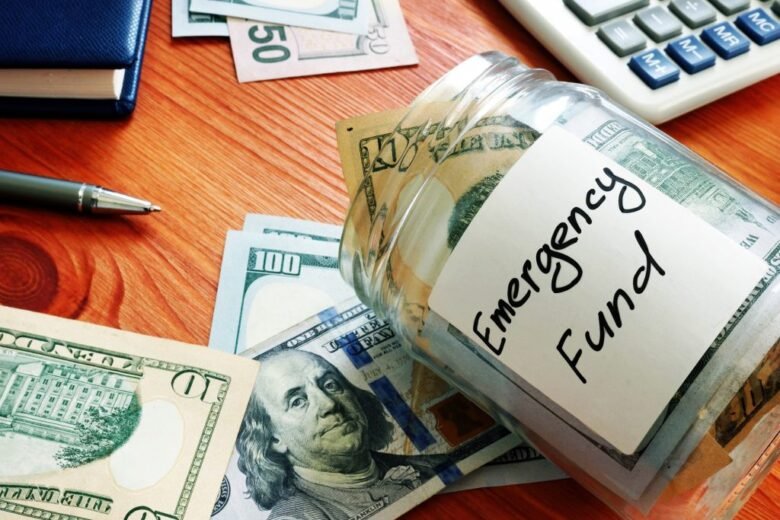An emergency fund is an essential tool to ensure financial security. Nevertheless, many people ignore its importance. A fund is simply money that you set aside for unexpected expenses and emergencies. It may seem obvious, but the importance of an emergency fund in maintaining financial stability cannot be understated. Despite your best preparations, unforeseen events such as car breakdowns, medical emergencies, and job losses can still happen. These events can cause debt, stress, and instability without an emergency fund. Having an emergency fund ensures you’re ready for unforeseen events, bringing you peace of mind.
Why Everyone Needs an Emergency Fund
No one is immune from financial surprises. Even those with high salaries can face unexpected challenges that cause them to lose their jobs. If you don’t have enough money saved, you may be forced to use credit cards or borrow. This process can lead to high-interest loans that are difficult to pay back. A fund for emergencies can help you avoid this vicious cycle and give you the financial freedom you need in difficult times. It is a cushion to absorb shocks, allowing you to continue living your life with minimal disruption.
The Role of an Emergency Fund in Reducing Stress
Stress reduction is one of the greatest benefits of an emergency fund. Many people experience anxiety due to financial worries. Stress can be overwhelming when an unexpected expense occurs and you do not have the money to cover it. A fund for emergencies can help you to feel confident that you will be able to handle any unexpected expenses. Knowing that you can cover an emergency, even if it is unpleasant, prevents panic. You can then focus on solving the problem rather than worrying about money.
How an Emergency Fund Protects Against Job Loss
Losing a job is one of life’s most difficult challenges. During the time it takes to find a new job, bills and expenses continue. Unemployment can lead to debt, so an emergency fund is essential for staying afloat. For this reason, financial experts recommend that you save at least three months of living expenses. You can then search for a job while not having to worry about paying rent, buying food, or covering utilities. This safety net makes transitions easier and less stressful.
How to Cover Unexpected Medical Costs
Medical expenses are another area in which emergency funds can be useful. Medical expenses are unpredictable, even with insurance. You may be faced with unexpected medical bills if you suffer an illness, have an accident, or undergo a procedure. These costs can cause financial difficulties if you don’t have an emergency fund. Savings allow you to focus on your recovery and not worry about money. The fund will also keep you from making rash financial decisions like selling assets or borrowing cash to pay for medical expenses.
Repairing Your Car and Home
Unexpected expenses are common for people, especially when it comes to car and home repairs. Car breakdowns can cause disruptions in your life and may even put your job at risk if you depend on your car for work. A leaking roof, a broken heater, or a plumbing issue are also urgent home issues that require immediate attention. They are usually unplanned but unavoidable. A fund for emergencies will allow you to take care of urgent repairs and not worry about money. It maintains your quality of living and helps prevent small problems from becoming bigger and more costly over time.
Avoiding Debt and Financial Dependency
In the absence of an emergency fund, people will often borrow money from family and friends, take out payday loans, or use credit cards to cover unexpected expenses. It can be challenging to break free from a debt cycle. The interest charges can quickly add up, and you may end up paying more than the original amount. A fund for emergencies keeps you in control and stops you from depending on others or debt to solve your problems. This encourages positive financial habits and gives you control over your future.
Building Financial Stability and Confidence
A safety net isn’t just for unexpected expenses. It also helps build confidence and stability. You can take more secure financial decisions, like investing, planning your retirement, or pursuing personal objectives, when you know you have an emergency fund. You can make decisions with confidence, without worrying about what might happen if things go wrong. Someone with an emergency fund, for example, may feel more confident about changing careers, starting their own business, or moving because they know that they can fall back on savings. Stability creates opportunity and allows you to live without financial worry.
Conclusion
A personal emergency fund is a vital part of your finances. It provides financial security, protects against unplanned expenses, reduces anxiety, prevents credit card debt, and allows you financial freedom. If you are faced with unexpected expenses, such as medical bills or repairs, it is important to have money saved up. This fund also helps to build confidence and stability so that you can pursue your long-term goals with no fear of failure. It is impossible to overstate the importance of having an emergency fund. This account is not only a financial tool but also a source of peace of mind and security that you should all prioritize.
FAQs
1. What is an Emergency Fund?
An emergency fund is money set aside to cover unplanned expenses, such as unexpected medical costs, car repairs, or job losses.
2. How much money should I put aside for an emergency fund?
Experts recommend that you save three to six months’ worth of living expenses, but even saving a small amount can be valuable.
3. What should I do with my emergency fund?
You should keep it in an account that is easily accessible and safe, like a savings account. This will allow you to use the money quickly if needed.
4. When should I use the emergency fund?
You should only use it for real emergencies such as medical expenses, loss of employment, or repairs that are necessary.
5. Why is an emergency fund better than credit cards?
A fund for emergencies keeps you out of debt and from paying interest. It also helps you to be financially independent.




